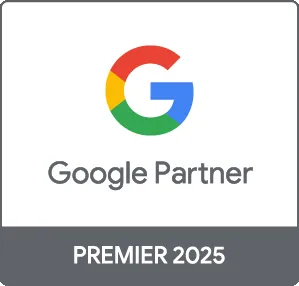Google AdWords, now known as Google Ads, is a powerful advertising platform that can help small businesses reach new customers and grow their online presence. In this guide, we'll explore the fundamentals of Google Ads, how to set up a successful campaign, and tips for maximizing your return on investment (ROI). Learn how to effectively use this advertising channel to elevate your business.
Understanding Google Ads
Google Ads is an online advertising service that allows businesses to create ads that appear on Google search results and its advertising network. As a small business, using Google Ads can help you target specific audiences based on their search queries, getting your products or services in front of the right people.
1. Setting Up Your Google Ads Account
The first step to leveraging Google Ads for your small business is to create an account. Here’s how to begin:
- Sign Up: Visit the Google Ads website and sign up for an account. You'll need to provide some basic information about your business.
- Select Your Goals: Choose what you want to achieve with your ads, such as increasing website traffic or generating leads.
- Set a Budget: Decide on a daily budget you're comfortable with. Google Ads offers flexibility, allowing you to adjust your budget as needed.
2. Keyword Research
Effective keyword research is essential for a successful Google Ads campaign. Consider the following tips:
- Use Google Keyword Planner: This tool helps you identify relevant keywords and get insights on search volume and competition.
- Focus on Long-Tail Keywords: These are more specific phrases that tend to have less competition and can lead to higher conversion rates.
- Analyze Competitor Keywords: Take note of the keywords your competitors are targeting to find gaps in your strategy.
3. Crafting Compelling Ads
Your ad copy is crucial for attracting clicks. Here are some key elements to consider:
- Attention-Grabbing Headlines: Use action-oriented language and incorporate your target keywords.
- Clear Call-to-Action: Encourage users to take action, such as “Buy Now” or “Learn More.”
- Highlight Unique Selling Points: Showcase what makes your business special or better than the competition.
4. Monitoring and Optimizing Your Campaign
Once your campaign is live, it’s important to track its performance and make adjustments as needed. Follow these practices:
- Analyze Performance Metrics: Regularly check metrics like click-through rates (CTR), conversion rates, and return on ad spend (ROAS).
- Conduct A/B Testing: Test different ad variations to see which performs best and optimize accordingly.
- Adjust Bids and Budgets: Be prepared to increase or decrease your bids based on performance data.
5. Consider Hiring a Professional
If managing Google Ads feels overwhelming, consider hiring a digital marketing agency. Professionals can help craft effective campaigns, saving you time and increasing your chances of success.
Conclusion
Google Ads offers small businesses a unique opportunity to reach potential customers effectively. By setting up a well-structured campaign, conducting thorough keyword research, and constantly optimizing your ads, you can see significant improvements in your online visibility and sales. At Prebo Digital, we specialize in helping businesses harness the power of online advertising. Let us help you grow your small business with Google Ads!





